U.S.
REPUBLIC MILITIAS
Friday Aug 14 2015
Vatic Note: There is seldom a time when “I have no words”…… and this is one of those times. I am listening to the last video in this blog and it has given me pause to what this country and our freedoms mean to us as we have forgotten it after so many generations of living within and taking it for granted. Please read and listen to these videos and see if you get what its all about in the end. Freedom and Liberty. Nothing else can replace it. This blog and videos say it all. My words can add nothing, except to support this below 100% as we are starting to realize.
U.S. Republic Militias
http://politicalvelcraft.org/u-s-militias/
By Admin, Political Velcraft, August 2015
George Washington takes the oath of office at Federal Hall in lower Manhattan, April 30, 1789.
On September 17, 1787 George Washington was the first to sign and accept the Constitution even though it had no Bill of Rights. It was Patrick Henry with his great speeches and lectures who in 1788 forced an agreement which promised that continued ratifications of the document depended upon a Bill of Rights to be forthcoming.
In 1789 Washington took office and was faced with the arduous task of pioneering the first presidency including the structuring of the militia system. By January 1790 the influence Patrick Henry had over him became quite apparent. When Washington chaired the 1787 Constitutional Convention, provisions had been made for the defense of the country against invasion and for stifling rebellions, but there was an insufficiency of safeguards to be applied against tyranny brought on by public officials.
Washington himself took the farmers out for practice, and he utilized the knowledge and experiences of his generals and other valuable officers in the War for Independence by having them instruct and train the citizens (the whole people) in the techniques of soldiering and the maintenance of an ‘energetic national militia’.
His “Plan No. 2 for the Organization of the Militia” was communicated to the Senate on the 21st of January 1790. This lengthy Plan was permeated with the proposition that it is the direct duty and responsibility of the people themselves to guard against tyranny from within government.
Washington declared that the purpose of the militia was “to oppose the introduction of tyranny.” He had come a long way from the days when he accepted the Constitution without a Bill of Rights.
To view Washington’s statement in the context in which it was delivered, please look over the following excerpt taken from Pages 7-8 of an old document published by Gales and Seaton in 1832 entitled “American State Papers – Documents, Legislative and Executive, of the Congress of the United States, from the First Session of the First to the Second Session of the Fifteenth Congress, inclusive: commencing March 3, 1789, and ending March 3, 1819”.
This excerpt is a part of Washington’s lengthy Plan No. 2 of 1790. While he also made reference to the prevention of invasion and rebellion, Washington said that “the well informed members of the community (the people) were meant to be the real defence of the country”; and “the virtues and knowledge of the people would effectually oppose the introduction of tyranny.”
He warned that “the government would be invaded or overturned, and trampled upon by the bold and ambitious” — meaning people in our own country who operated without adherence to vital principles. The absoluteness of the right of the people to keep and bear arms is a basic principle. Unless the right to arms is absolute, the people cannot remain the ultimate power.
The Bill of Rights confirmed that we possess many other rights beside the absolute right to arms. All of the other rights for the preservation of their own existence, depend entirely upon the absoluteness, the force, and the reasoning that have shaped the Second Amendment.
Washington agreed with Patrick Henry on the purpose of the militia: It was to “oppose the introduction of tyranny.” Make no mistake about it: The prime reason for the Second Amendment is prevention of tyranny in government.
EXCERPT FROM GEORGE WASHINGTON’S 1790 PLAN FOR THE ORGANIZATION OF THE MILITIA
“An energetic national militia is to be regarded as the capital security of a free republic, and not a standing army, forming a distinct class in the community.
It is the introduction and diffusion of vice and corruption of manners into the mass of the people that renders a standing army necessary. It is when public spirit is despised, and avarice, indolence, and effeminacy of manners predominate and prevent the establishment of institutions which would elevate the minds of the youth in the paths of virtue and honor that a standing army is formed and riveted forever.
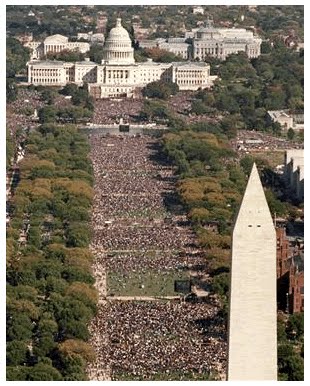
While the human character remains unchanged, and societies and governments of considerable extent are formed, a principle ever ready to execute the laws, and defend the state, must constantly exist. Without this vital principle, the government would be invaded or overturned, and trampled upon by the bold and ambitious. No community can be long held together, unless its arrangements are adequate to its probable exigencies.
If it should be decided to reject a standing army for the military branch of the government of the United States, as possessing too fierce an aspect, and being hostile to the principles of liberty, it will follow that a well constituted militia ought to be established.
A consideration of the subject will show the impracticability of disciplining at once the mass of the people. All discussions on the subject of a powerful militia will result in one or other of the following principles:
First, Either efficient institutions must be established for the military education of the youth, and that the knowledge acquired therein shall be diffused throughout the community, by the mean of rotation; or,
Secondly, That the militia must be formed of substitutes, after the manner of the militia of Great Britain.
If the United States possess the vigor of mind to establish the first institution, it may reasonably be expected to produce the most unequivocal advantages.
A glorious national spirit will be introduced, with its extensive train of political consequences. The youth will imbibe a love of their country; reverence and obedience to its laws; courage and elevation of mind; openness and liberality of character; accompanied by a just spirit of honor: in addition to which their bodies will acquire a robustness, greatly conducive to their personal happiness, as well as the defence of their country; while habit, with its silent but efficacious operations, will durably cement the system.
Habit, that powerful and universal law, incessantly acting on the human race, well deserves the attention of legislators — formed at first in individuals, by separate and almost imperceptible impulses, until at length it acquires a force which controls with irresistible sway. The effects of salutary or pernicious habits, operating on a whole nation, are immense, and decide its rank and character in the world.
-2-Hence the science of legislation teaches to scrutinize every national institution, as it may introduce proper or improper habits; to adopt with religious zeal the former, and reject with horror the latter.
A republic, constructed on the principles herein stated, would be uninjured by events, sufficient to overturn a government supported solely by the uncertain power of a standing army.
The well informed members of the community, actuated by the highest motives of self-love, would form the real defence of the country. Rebellions would be prevented or suppressed with ease; invasions of such a government would be undertaken only by mad men; and the virtues and knowledge of the people would effectually oppose the introduction of tyranny.
But the second principle, a militia of substitutes, is pregnant, in a degree, with the mischiefs of a standing army; as it is highly probable the substitutes from time to time will be nearly the same men, and the most idle and worthless part of the community. Wealthy families, proud of distinctions which riches may confer, will prevent their sons from serving in the militia of substitutes; the plan will degenerate into habitual contempt; a standing army will be introduced, and the liberties of the people subjected to all the contingencies of events.
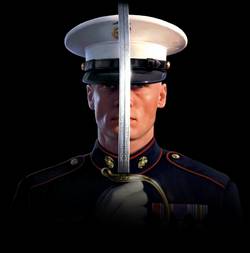
The expense attending an energetic establishment of militia may be strongly urged as an objection to the institution. But it is to be remembered that this objection is leveled at both systems, whether by rotation or by substitutes: for, if the numbers are equal, the expense will also be equal. The estimate of the expense will show its unimportance, when compared with the magnitude and beneficial effects of the institution.
But the people of the United States will cheerfully consent to the expenses of a measure calculated to serve as a perpetual barrier to their liberties; especially as they well know that the disbursements will be made among the members of the same community, and therefore cannot be injurious.
Every intelligent mind would rejoice in the establishment of an institution under whose auspices the youth and vigor of the constitution would be renewed with each successive generation, and which would appear to secure the great principles of freedom and happiness against the injuries of time and events.”
The following plan is formed on these general principles:
First, That it is the indispensable duty of every nation to establish all necessary institutions for its own perfection and defence.
Secondly, That it is a capital security to a free state for the great body of the people to possess a competent knowledge of the military art.
Thirdly, That this knowledge cannot be attained in the present state of society, but by establishing adequate institutions for the military education of youth; and that the knowledge acquired therein should be diffused throughout the community by the principles of rotation.
Fourthly, That every man of the proper age and ability of body is firmly bound by the social compact to perform personally his proportion of military duty for the defence of the state.
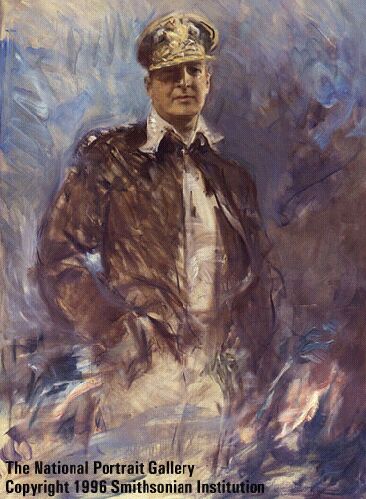
General MacArthur
Fifthly, That all men of the legal military age should be armed, enrolled and held responsible for different degrees of military service.
And Sixthly, That agreeably to the constitution, the United States are to provide for organizing, arming and disciplining the militia and for governing such a part of them as may be employed in the service of the United States; reserving to the States, respectively, the appointment of the officers and the authority of training the militia according to the discipline prescribed by Congress.”
End of excerpt from the 1790 Plan for Organization of the Militia
GEORGE WASHINGTON
George Washington is listed as No. 1 in the Hall of Fame. In addition to his many other remarkable achievements, his Farewell Address also has gone down in history as one of the greatest writings of all time. In it he warned against engaging in foreign influence and entanglements, weakening the fabric of the constitutional government, loss of respect for national morality and religious principles, growth of party spirit, and against the devastation brought on by pretended patriotism.
“Why quit our own to stand upon foreign ground? Why, by interweaving our destiny with that of any part of Europe, entangle our peace and prosperity in the toils of European ambition, rivalship, interest, humor and caprice?"
"It is our true policy to steer clear of permanent alliance with any portion of the foreign world….”
Yet, we allow our public officials to “police the world”.
Further still he said:
“One method of assault may be to effect, in the forms of the Constitution, alterations which will impair the energy of the system, and thus to undermine what cannot be directly overthrown…..”
Yet, we allow our public officials to effect grievous alterations in the operation of the Constitutional system, swear by the oath of office under pretended allegiance, and destroy our inherent right as the ultimate power in the republic by denying us the use of firearms.”
BROTHERS IN ARMS
Dire Straits
Liberty Gun Rights
George Washington agreed with Patrick Henry on the purpose of the militia
http://www.libertygunrights.com/GW1790%20Plan%20Column.pdf
http://beforeitsnews.com/power-elite/2015/08/u-s-republic-militias-2-2449694.html?currentSplittedPage=2

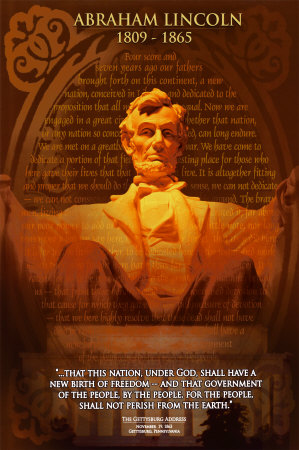

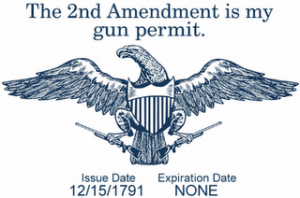






No comments:
Post a Comment